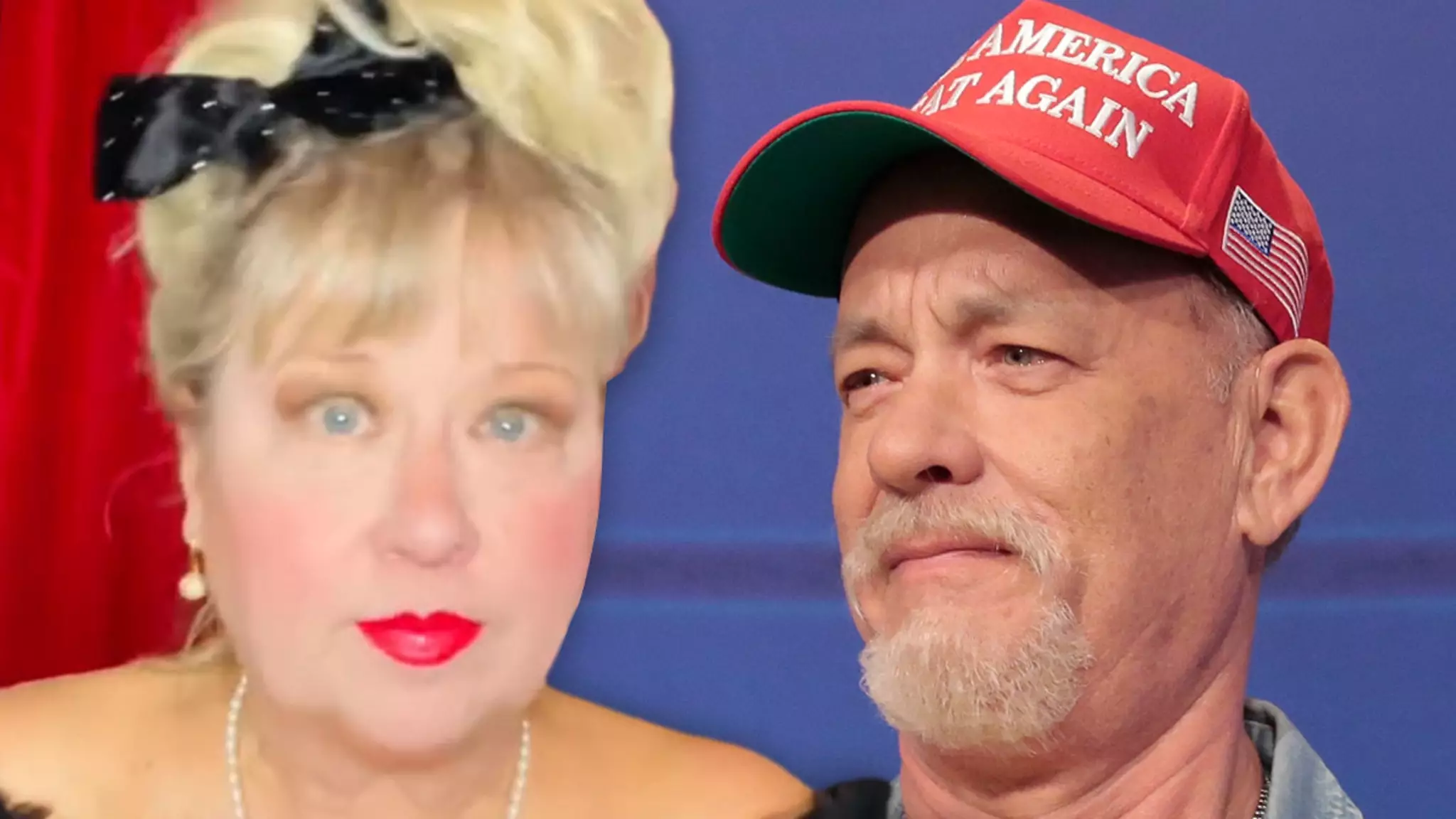In a world where political divides deepen daily, even the most neutral platforms are unable to escape controversy. This past weekend, Tom Hanks found himself embroiled in a political melee following a satirical skit on “Saturday Night Live” (SNL) where he mocked supporters of former President Donald Trump. Claiming his comedic intentions were not malicious, Hanks inadvertently sparked outrage, particularly from those who hold strong political beliefs, such as former SNL cast member Victoria Jackson. This incident not only raises questions about comedic boundaries but also showcases the combustible mix of politics and humor in contemporary media.
The fallout from Hanks’ skit quickly reached digital platforms, resulting in scathing critiques from various commentators. Victoria Jackson, a self-proclaimed staunch Trump supporter and a member of the SNL cast from the late ’80s to early ’90s, expressed her discontent through interviews and social media. Her disapproval drew attention not just to Hanks but also to the broader trope that equates MAGA supporters with racism, an assertion made by political commentator Link Lauren. By highlighting the “downright disgusting” nature of this narrative, Jackson’s reaction reflects a significant trend in political discourse during a time when satire itself can be weaponized against specific ideologies.
Comedy, particularly political satire, has historically served as a device for social commentary. However, the balance between humor and offense is a precarious one. Jackson’s statement that the skit was “stupid” and her disapproval of the crude humor demonstrated by some cast members illustrate the fine line comedians must tread. While many laugh at the antics of SNL, others may perceive them as direct attacks on their beliefs, leading to polarization rather than unity. This incident serves as a testament to the complexities involved in a comedy that’s meant to reflect social realities while acknowledging the sensitivity of varying perspectives.
Victoria Jackson’s eerie observation that Hanks’ skit seemed to lack parody aimed at supporters of Vice President Kamala Harris brings to light the uneven application of comedic scrutiny in political discourse. In an age where river currents of ideology clash, the steering of comedy toward a particular political alignment raises crucial questions about inclusivity and fairness in humor. SNL, as one of America’s leading comedy shows, has the responsibility to either provide balanced portrayals of all sides or risk reinforcing existing biases. Jackson’s juxtaposition underscores an essential facet of political satire; the need for comedians to consider their audience and the potential ramifications of their material.
As Tom Hanks faces backlash, it becomes clear that the intersection of comedy and politics requires a thoughtful approach. For comedians, particularly those who wield considerable cultural influence, the challenge lies not just in eliciting laughter, but in fostering understanding across the political spectrum. The incident not only highlights how humor can ignite controversy but also serves as a reminder of the broader implications of comedy in shaping public discourse. As Hanks navigates this explosive situation, it is incumbent upon comedians and public figures alike to wield their influence responsibly, promoting dialogue rather than further division.

